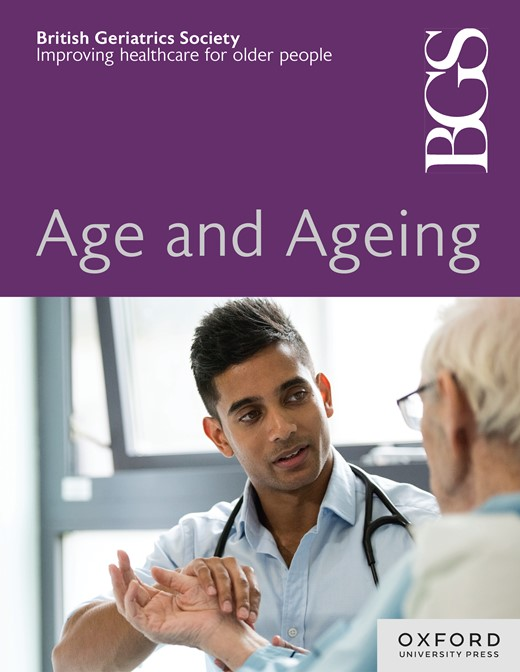Cancer and older people. A research collection and commentary on the theme
IF 7.1
2区 医学
Q1 GERIATRICS & GERONTOLOGY
引用次数: 0
Abstract
Cancer disproportionately affects older adults, who account for the majority of diagnoses and deaths globally. However, research and clinical care often fail to adequately address their unique needs. This collection of studies in Age and Ageing highlights challenges and opportunities in geriatric oncology. The rising incidence of cancer in the older population, driven by demographic shifts and socioeconomic factors, underscores the need for targeted prevention and control strategies. Despite this, older adults remain underrepresented in clinical trials, with barriers including social isolation, healthcare professionals’ biases and a lack of dedicated studies. Frailty assessment is gaining ground as a key tool in geriatric oncology. Studies on frailty scores such as the Hospital Frailty Risk Score, and comprehensive geriatric assessment (CGA), show their ability to predict outcomes and guide interventions. CGA-based care has been shown to reduce treatment toxicity without compromising survival, yet its integration into routine practice remains limited. Treatment challenges are common, particularly with novel therapies like immune checkpoint inhibitors, which carry age-specific risks of adverse events. Tailored services are essential to address the diverse needs of older cancer patients. Research highlights the importance of improving communication around cancer screening for older adults and developing specialised care pathways for vulnerable populations, such as those with dementia. Continuity of care remains a significant challenge, requiring better coordination across healthcare providers. These findings emphasise the urgent need for age-attuned research, frailty-informed care models and tailored interventions to improve outcomes for older adults with cancer.癌症和老年人。关于这一主题的研究文集和评论
癌症对老年人的影响尤为严重,他们占全球诊断和死亡的大多数。然而,研究和临床护理往往不能充分满足他们的独特需求。《年龄与老龄化》的这组研究突出了老年肿瘤学的挑战和机遇。在人口结构变化和社会经济因素的推动下,老年人口中癌症发病率不断上升,这突出表明需要制定有针对性的预防和控制战略。尽管如此,老年人在临床试验中的代表性仍然不足,存在社会隔离、医疗保健专业人员的偏见和缺乏专门研究等障碍。衰弱评估作为老年肿瘤学的一项关键工具正在逐渐普及。对衰弱评分的研究,如医院衰弱风险评分和综合老年评估(CGA),显示了它们预测结果和指导干预措施的能力。基于cga的护理已被证明可以在不影响生存的情况下降低治疗毒性,但将其纳入常规实践仍然有限。治疗挑战是常见的,特别是像免疫检查点抑制剂这样的新疗法,它具有特定年龄的不良事件风险。量身定制的服务对于满足老年癌症患者的不同需求至关重要。研究强调了改善老年人癌症筛查沟通和为弱势群体(如痴呆症患者)开发专门护理途径的重要性。护理的连续性仍然是一项重大挑战,需要医疗保健提供者之间更好地协调。这些发现强调了迫切需要针对年龄的研究、体弱多病的护理模式和量身定制的干预措施,以改善老年癌症患者的预后。
本文章由计算机程序翻译,如有差异,请以英文原文为准。
求助全文
约1分钟内获得全文
求助全文
来源期刊

Age and ageing
医学-老年医学
CiteScore
9.20
自引率
6.00%
发文量
796
审稿时长
4-8 weeks
期刊介绍:
Age and Ageing is an international journal publishing refereed original articles and commissioned reviews on geriatric medicine and gerontology. Its range includes research on ageing and clinical, epidemiological, and psychological aspects of later life.
 求助内容:
求助内容: 应助结果提醒方式:
应助结果提醒方式:


